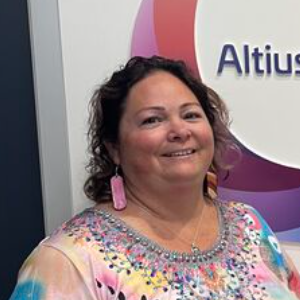For Aboriginal and Torres Strait Islander peoples, wellbeing is woven through culture, community, and connection. As a Yamaji woman and psychologist, I've seen how workplaces that understand this see stronger, more engaged teams.
Why Social and Emotional Well-Being (SEWB) Matters
Research shows us what many First Nations people already know – good mental health comes from strong connections to culture, community and purpose (Dudgeon et al., 2014). When these connections are threatened by factors like discrimination, family separation or unemployment (Gee et al., 2014), it impacts whole communities.
The numbers tell an important story:
- 3 in 10 (31%) First Nations adults experience high psychological distress (ABS, 2019)
- Disruptions to kinship ties link directly to increased suicide risk (Dudgeon et al., 2021)
What Works in Workplace Support
-
Understand the SEWB Wheel
The evidence-based SEWB model shows wellbeing comes from seven interconnected areas:- Body (physical health)
- Mind and Emotions (mental health)
- Family and Kinship (relationships)
- Community (belonging)
- Culture (identity, traditions)
- Country (land, spirituality)
- Ancestors and Spirituality (heritage)
-
Normalise help-seeking
Many First Nations people avoid seeking help due to shame or mistrust - understandable given historical experiences. Open conversations about wellbeing, led by leadership examples. Simple messages like "It's okay to yarn with someone" can break down stigma. -
Share culturally specific support lines
Ensure all staff know about:
- 13YARN: 13 92 76 (free and confidential counselling service run by First Nations people)
- Brother to Brother: 1800 435 799 (men's support line)
-
Work with culturally safe providers
Altius connects organisations with First Nations Psychologists and clinicians trained in the SEWB framework. From one-on-one support to team workshops, we tailor approaches that respect cultural needs. -
Create space for culture
Research shows cultural participation strengthens resilience and wellbeing (PM&C, 2017). Simple workplace acknowledgments - like observing Sorry Day or accommodating cultural practices - align with what studies confirm: maintaining cultural connections supports mental health.
Businesses that support First Nations wellbeing see stronger engagement, lower turnover and more inclusive cultures. It's practical workplace strategy, done respectfully.
Altius brings 900+ health experts nationwide, including First Nations practitioners ready to support your team. Let's build workplaces where everyone belongs.
Call 1800 258 487, send us a message or visit altius.au to start the conversation.
Yamaji woman and Registered Psychologist at PeopleSense: Psychology & Wellbeing by Altius, specialising in Indigenous mental health access and therapeutic alliance. Her work explores barriers to care, "authority anxiety," and "gratuitous concurrence," offering insights into improving mental health services for Indigenous Australians.



.png?upsize=true&upscale=true&A).png&?upsize=true&upscale=true&A).png&width=365&name=How%20Important%20Is%20Employee%20Wellbeing%20(Q%26A).png?upsize=true&upscale=true&A).png&?upsize=true&upscale=true&A).png)
%203.png?upsize=true&upscale=true&A)%203.png&?upsize=true&upscale=true&A)%203.png&width=365&name=What%20Are%20Employee%20Wellbeing%20Programs%20(Q%26A)%203.png?upsize=true&upscale=true&A)%203.png&?upsize=true&upscale=true&A)%203.png)


